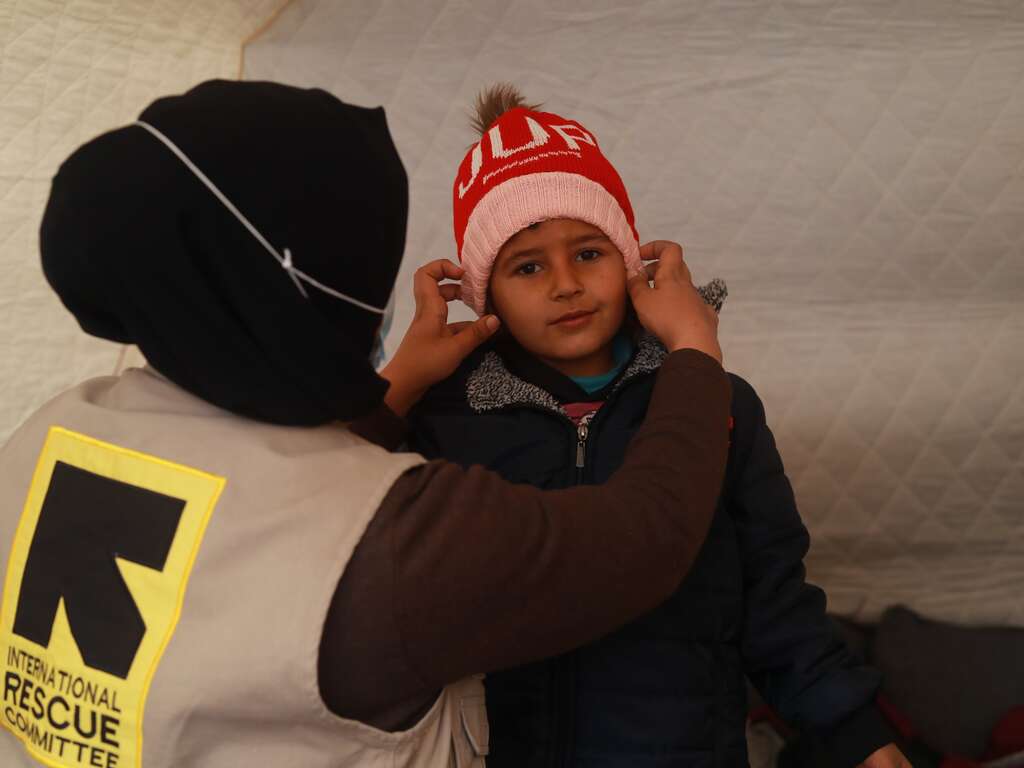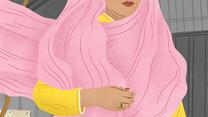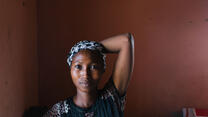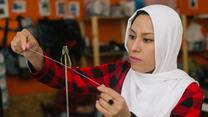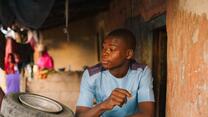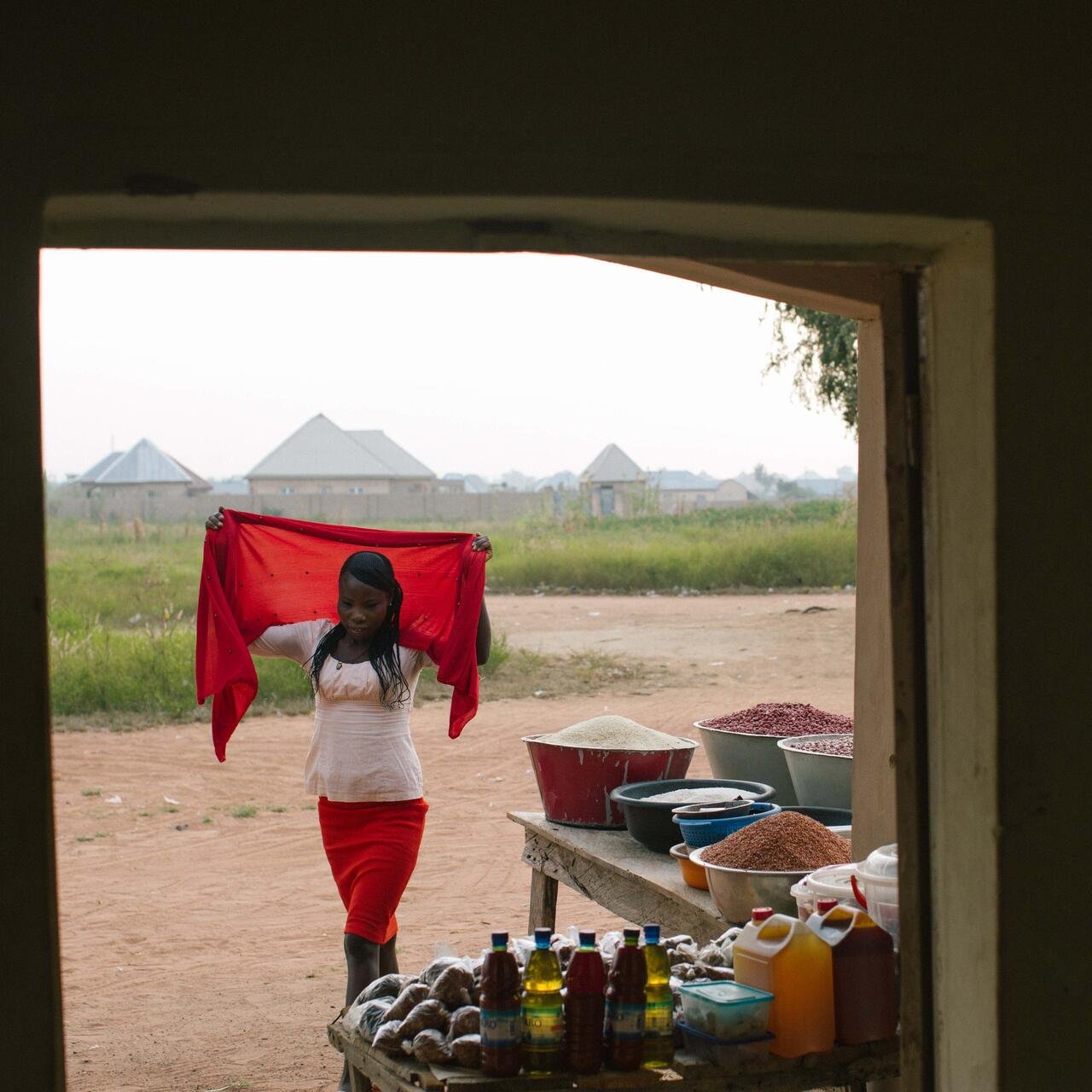
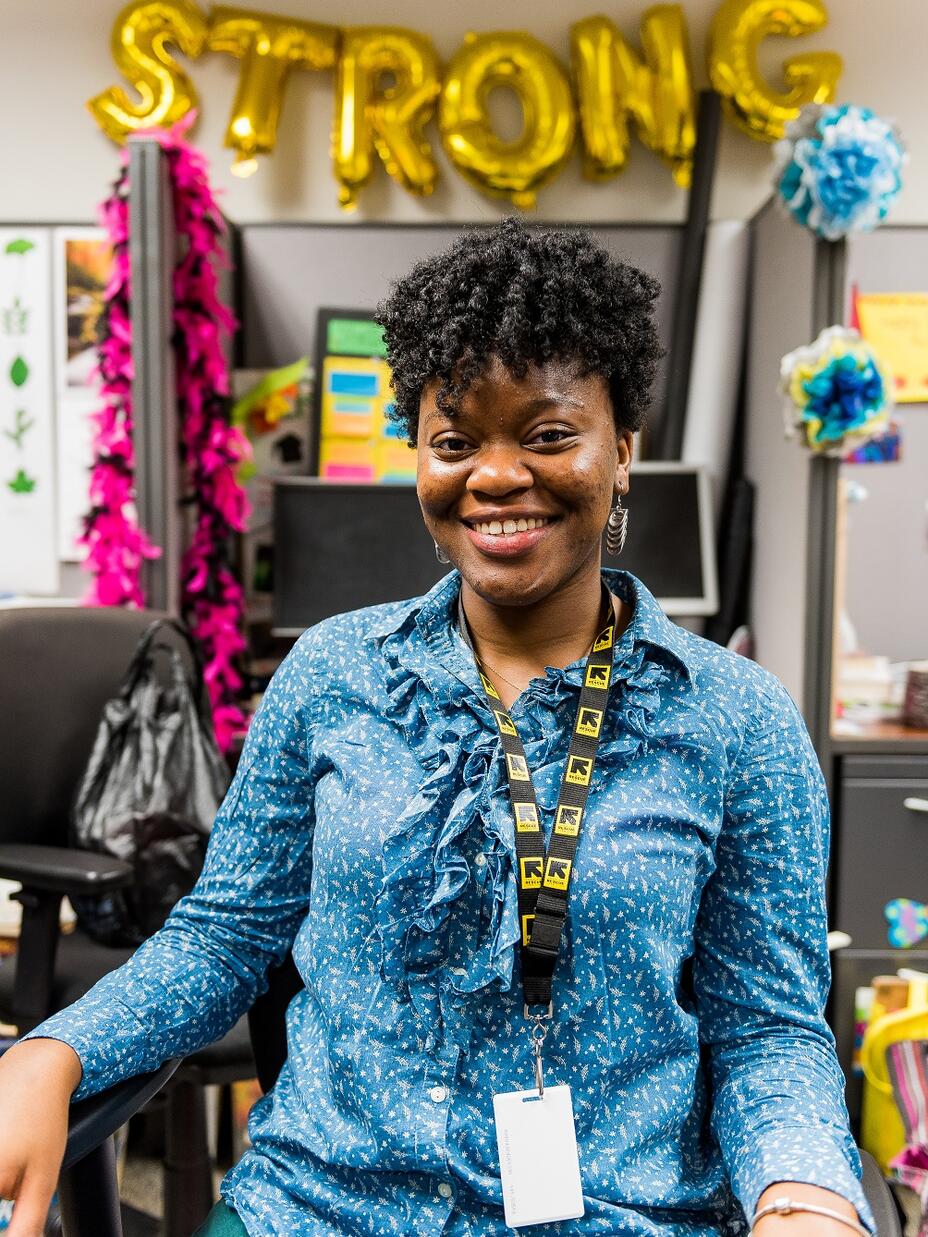
Laraba’s steady gaze tells you she’s got this: “I want to be the greatest grain seller in this community. That is my hope, and my vision. My goal is to have my own land, for my siblings to go to school and to be able to support my parents.”
“The young people in my community talk about what I'm doing and how they want to do this, too. It's because I'm strong,’’ she says, casually shifting a 100 kilogram sack of rice. “If I say I want to do something, I will do it. I am serious. I'm very determined. I will be a successful person in this community. I think my competitors are afraid of me!”
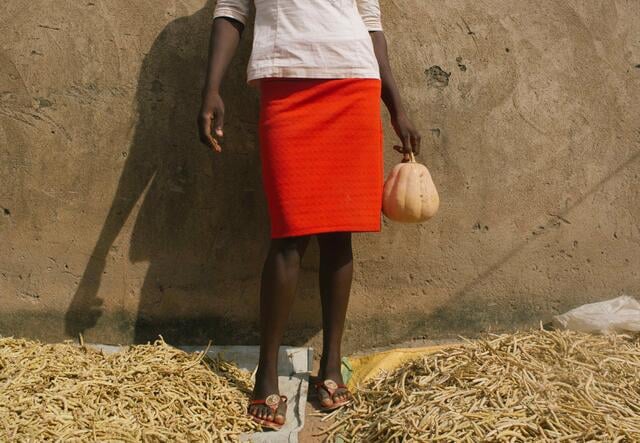
Laraba is a businesswoman, trailblazer and survivor. She is from northeast Nigeria and grew up surrounded by family.
But on the 23rd August 2014, her life changed forever.
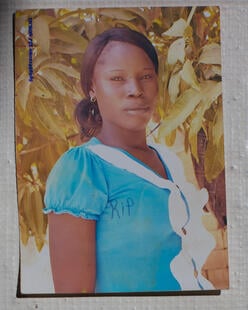
“August 23rd 2014 is the day this happened to me.” Laraba lowers her voice, tilts her head toward her chest and brings her shoulders forward, retreating into herself. She takes a deep breath and closes her eyes for a second, as if summoning the strength to tell her story. “It is the day Boko Haram arrived in my village. My sister, Rebecca, and I started to run, but instead of escaping, we fell into Boko Haram’s arms. They shot her as we were running. That was the end of her life that day. A week later, I buried her.”
“They took two of my other sisters away with them. My sister Patience spent four months in captivity, but she managed to escape and return to our village. We don’t know how my other sister, Goodyear, is. Maybe she is dead.”
On top of the tragedy of losing her sisters, Laraba also became separated from her parents and spent six long months with no way of contacting them. It was only by chance that a neighbour then saw them in a different town.
“I shed tears of happiness to know they were alive,” Laraba says.
After the armed group took her village, Laraba fled with her younger brother Solomon and settled in Yola, a city 300 kilometres to the south. “I didn't have anyone to help me. I was the eldest, so I thought about how I could help my brother go to school. I wanted to pay for his school fees.”
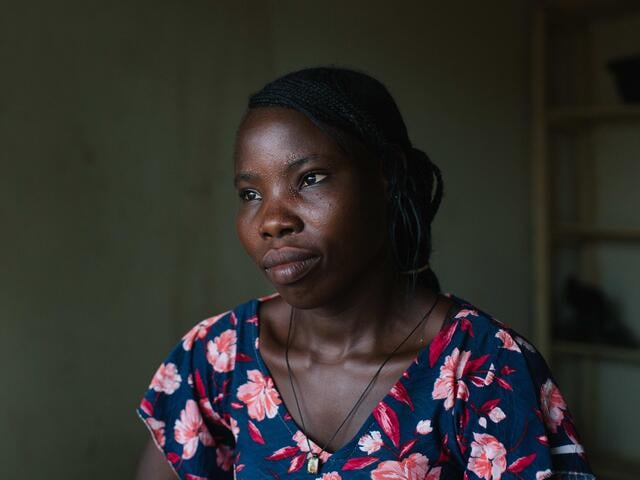
Laraba started to grow beans to make some money, buying chemicals to spray the weeds in front of her house and planting seeds. She then heard about the IRC’s entrepreneur training programme, supported by the Citi Foundation’s Pathways to Progress initiative, and signed up.
On the programme, Laraba learned important business skills, like how to manage revenue and provide good customer service. She did an evaluation of her local competitors and the needs of her potential customers to inform her business plan, which was ultimately selected as one of the most promising. She received mentorship and a small grant to help plan, start and run her business selling grains and staple foods. Lasim Grains has now been open for five months and is already proving a success – and a welcome resource for the community.
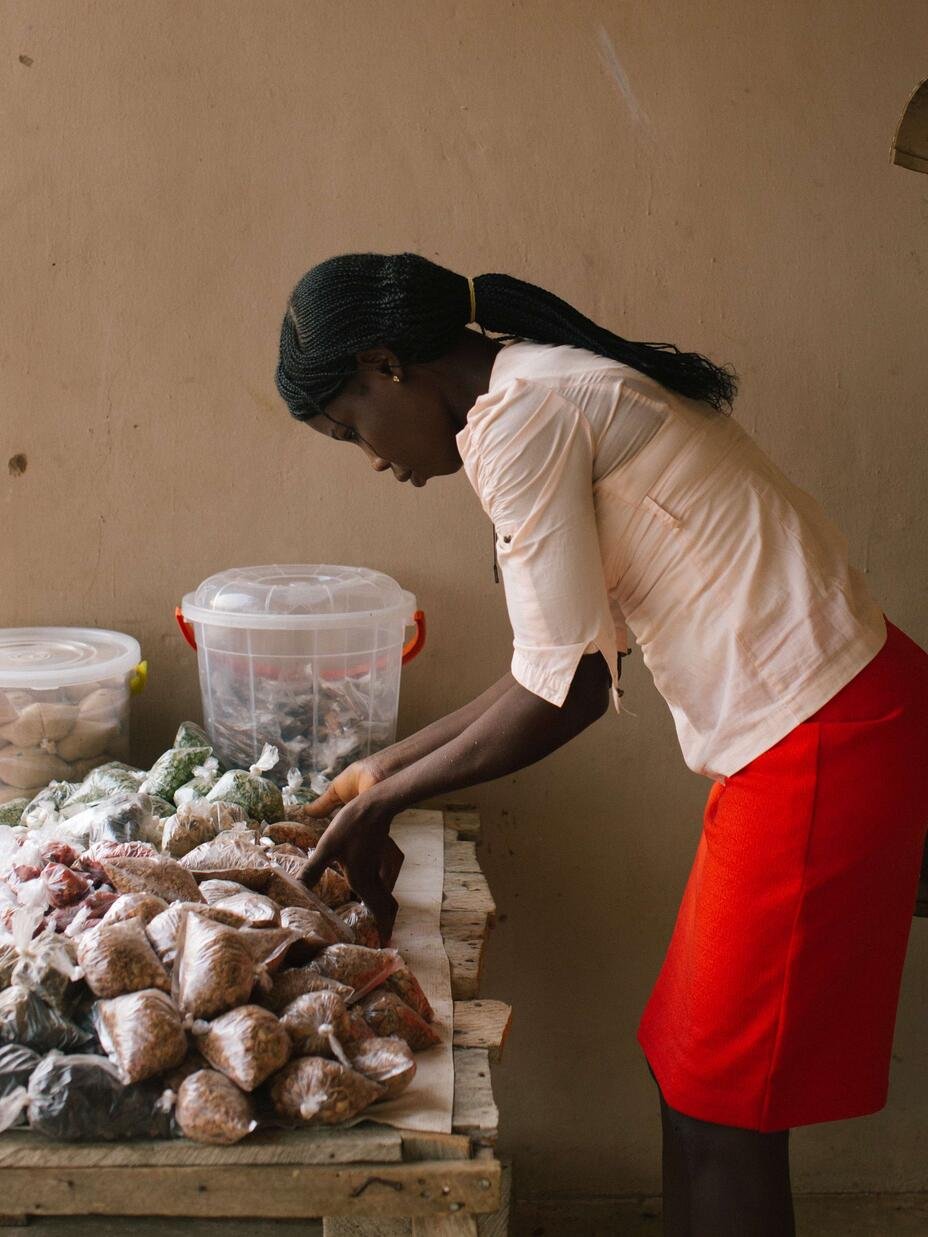
When Laraba talks about her business, you can see her confidence building: “I didn’t know what a business plan was before I did this course, and didn’t know anyone who could help me write one. When I wrote my draft business plan and I said to my mentor, ‘Take a look at this rubbish!’ and she replied, ‘Don't change anything about this!’” Laraba beams with pride and lets out a low and infectious chuckle.
“I really learned so much from this course, and now I want to teach others.”
Laraba attracts customers by travelling farther than her competitors to buy her stock at a lower price. “I go to the market where I know the price is best, and I’m then able to sell my rice for 1.70 Naira while my competitors charge 1.80.”
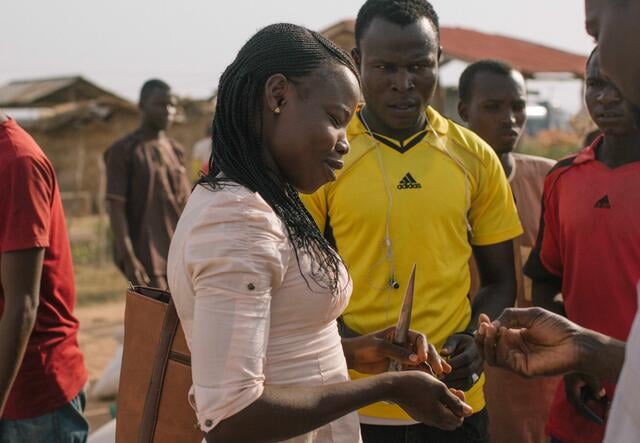
Wearing a scarlet pencil skirt and crisp white shirt and carrying a tan leather handbag, Laraba stands out in the all-male crowd at the market. But she’s undeterred: “I used to be scared as I am the only woman at the market. But now I am not afraid to negotiate and I buy with confidence. The traders know not to mess with me.” She holds her head high. “They say this girl, she is businesswoman and she knows what she is doing.”
Laraba’s mother is a big influence on her business. “When I was a child I would watch her at the market. She would negotiate and at the end of the day she'd get what she wanted. I learned this from her.”
Now reunited with her parents, Laraba speaks to her mother every day on the phone. “She says she is proud of what I am doing.”
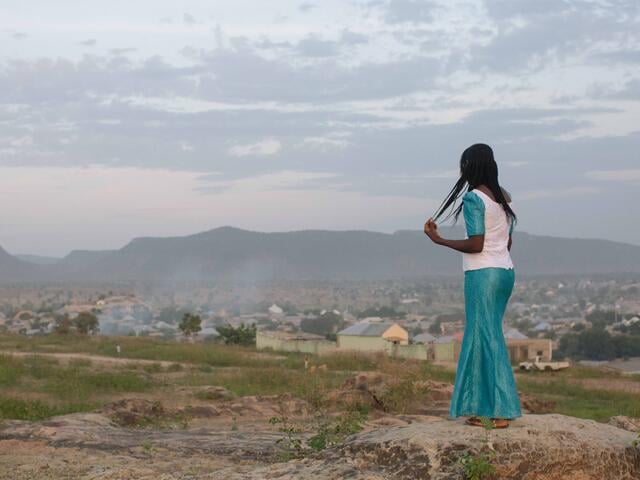
“I run my business with boldness and happiness. I take care of it very well. Any time I can work, I do. I know how much there is to be done, so I need to work hard. I can work morning, afternoon and night without stopping or saying I'm tired. I'm not afraid of work, seriously!”
She says, “After all I have gone through, the thing I have learned in life is how to coexist with people in a good way, without violence. And I’m happy about that.”
Find out more
Our Rescuing Futures programme, in partnership with Citi through the Citi Foundation, offers young entrepreneurs living in Greece, Nigeria and Jordan the chance to kick-start their businesses and reach their full potential.
